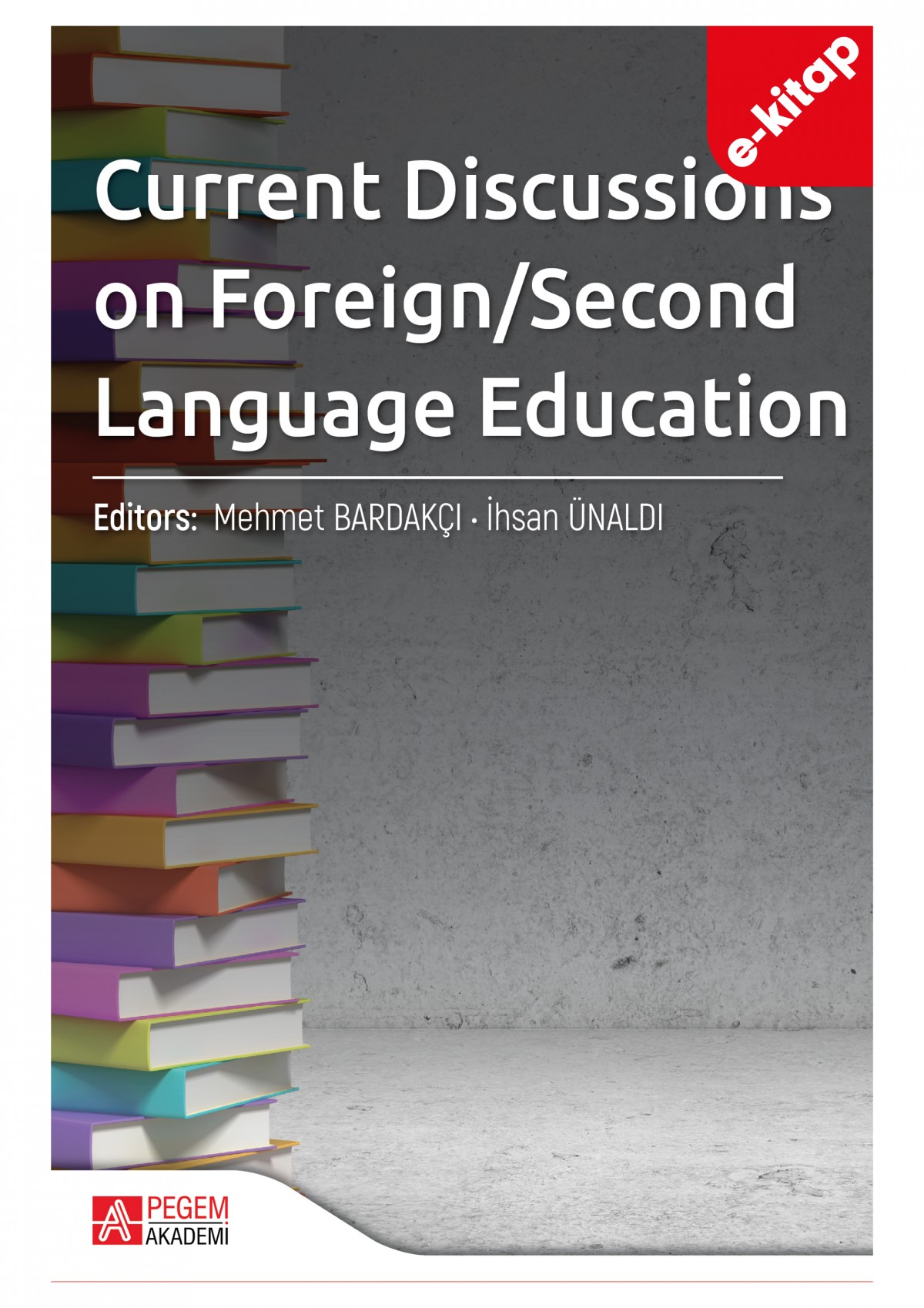

Millions of research articles and books are published every year. In this respect, researchers in any academic field face a significant problem. Today, it is more challenging than ever to catch up with new scientific development, even in a speci-fic field of study. The context of teaching English is no exception to this global trend. When we look at the history of language teaching and learning, we can see designer methods coupled with commercial concerns. New and fancy names are given to old and forgotten methods or techniques, and they are pushed into the markets for mass consumption. Obviously, this is a problem not just for researc-hers in the field but also for language teaching practitioners. At this point, some caution is required. Language teaching researchers and practitioners need to agree on what kind of research and related outcomes are more valuable, practical, and applicable. This book is intended to trigger discussions to overcome this issue to certain extents.
The primary audience of this book is EFL/ESL researchers and practitioners. However, it is also accessible for graduate and undergraduate students. With this project, we wanted to provide some pointers as to current discussions in EFL/ESL context. We tried to take a broad and inclusive view to help those interested in catching up with what is new in the field. Therefore, we covered a wide range of topics such as teaching language skills, distance/online teaching, teaching English to young learners, teacher development, CEFR, translingual practices, culture capital, vocabulary size, test anxiety, English as a medium of instruction, literature in langu-age teaching and metamodernism.
Mehmet Bardakçı holds a Ph.D. in English Language Teaching, and currently, he is an associate professor of English Language Teaching at a state university in Turkey. His research interests include teacher training, teaching English to young learners, critical reading and reasoning fallacies.
İhsan Ünaldı holds a Ph.D. in English Language Teaching. Currently, he is an associate professor at a state university in Turkey. His areas of interest are corpus linguistics, non-native vocabulary, and testing & assessment.
Millions of research articles and books are published every year. In this respect, researchers in any academic field face a significant problem. Today, it is more challenging than ever to catch up with new scientific development, even in a speci-fic field of study. The context of teaching English is no exception to this global trend. When we look at the history of language teaching and learning, we can see designer methods coupled with commercial concerns. New and fancy names are given to old and forgotten methods or techniques, and they are pushed into the markets for mass consumption. Obviously, this is a problem not just for researc-hers in the field but also for language teaching practitioners. At this point, some caution is required. Language teaching researchers and practitioners need to agree on what kind of research and related outcomes are more valuable, practical, and applicable. This book is intended to trigger discussions to overcome this issue to certain extents.
The primary audience of this book is EFL/ESL researchers and practitioners. However, it is also accessible for graduate and undergraduate students. With this project, we wanted to provide some pointers as to current discussions in EFL/ESL context. We tried to take a broad and inclusive view to help those interested in catching up with what is new in the field. Therefore, we covered a wide range of topics such as teaching language skills, distance/online teaching, teaching English to young learners, teacher development, CEFR, translingual practices, culture capital, vocabulary size, test anxiety, English as a medium of instruction, literature in langu-age teaching and metamodernism.
Mehmet Bardakçı holds a Ph.D. in English Language Teaching, and currently, he is an associate professor of English Language Teaching at a state university in Turkey. His research interests include teacher training, teaching English to young learners, critical reading and reasoning fallacies.
İhsan Ünaldı holds a Ph.D. in English Language Teaching. Currently, he is an associate professor at a state university in Turkey. His areas of interest are corpus linguistics, non-native vocabulary, and testing & assessment.
Basım Tarihi : 1.7.2021
Baskı Sayısı : 1
Sayfa Sayısı : 266
Ebat : 16x23,5 cm
Cilt Tipi : İNCE KAPAK
Basım Dili : Türkçe
Baskı Yeri : Ankara
Barkod : 9786257582155E
Diğer Yazarlar : Burcu Şentürk
Diğer Yazarlar : Doğan Yüksel
Diğer Yazarlar : Adnan Yılmaz
Diğer Yazarlar : Sezen Arslan
Diğer Yazarlar : Zekiye Müge Tavıl
Diğer Yazarlar : Esim Gürsoy
Diğer Yazarlar : Mehmet Altay
Diğer Yazarlar : Hüseyin Ateş
Diğer Yazarlar : Mehmet Bardakçı
Diğer Yazarlar : Mehmet Bardakçı
Diğer Yazarlar : Timuçin Buğra Edman
Diğer Yazarlar : İhsan Ünaldı
Diğer Yazarlar : Mehmet Galip Zorba
Diğer Yazarlar : Fadime Yalçın Arslan
Diğer Yazarlar : Akın Gürbüz
Diğer Yazarlar : Şevki Kömür
Diğer Yazarlar : Erkan Yüce
Diğer Yazarlar : Eda Nur Özcan
Diğer Yazarlar : İhsan Ünaldı
Diğer Yazarlar : Kağan Büyükkarcı
Diğer Yazarlar : Ercan Kaçmaz






